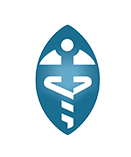Advancing Health Equity
Secondary victims of trauma refer to individuals who were not directly involved in a traumatic event but were exposed to it through various means, such as witnessing the event, learning about it from others, or dealing with the aftermath. These individuals can experience various types of trauma, including:
- Vicarious trauma
- Compassion fatigue
- Secondary traumatic stress
- Survivor guilt
- Emotional distress
It is important to note that the impact of secondary trauma can vary depending on factors such as the individual’s personal history, coping mechanisms, and the nature and duration of exposure to the traumatic material or event. Providing appropriate support and resources for secondary victims is crucial to mitigate the potential negative effects of vicarious trauma exposure.
Here’s a link to our most recent report.
Health Justice: There are several health equity policies and initiatives being considered or implemented to address disparities in healthcare access, quality, and outcomes.
- Affordable Care Act (ACA) Expansion: There are ongoing efforts to expand the ACA’s coverage provisions, such as expanding Medicaid eligibility in more states and increasing federal subsidies for marketplace plans. This aims to improve access to affordable healthcare for low-income and underserved populations. We are actively advocating for greater access to affordable healthcare.
- Funding for Community Mental Health Centers in Chicago: There are proposals to increase funding for community mental health centers, which provide mental healthcare services to underserved communities, including those without health insurance or with limited access to healthcare. We are actively advocating for the realization of this vision communicated by Mayor Brandon Johnson of the City of Chicago and holding him to the task.
Capacity Building: Co-conveners of community conversations and developer and deliverer of training on implicit bias and anti-racism in spiritual care.
- Cultural Competency Training: Many organizations providing care in marginalized communities are in need of cultural competency training programs to improve providers’ ability to deliver culturally appropriate care and address potential biases that may contribute to health disparities. We provide workshops and webinars to increase cultural competency.



